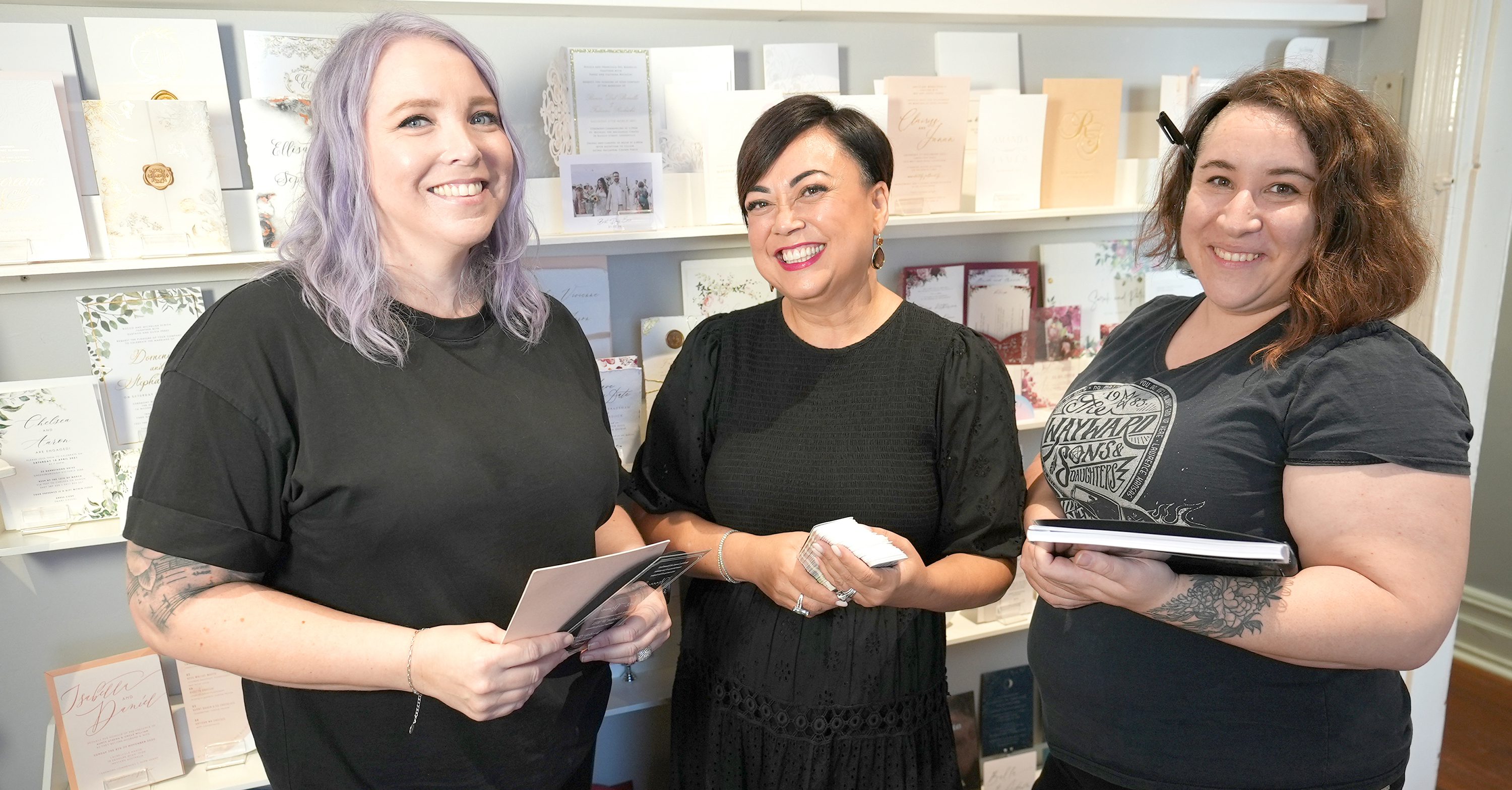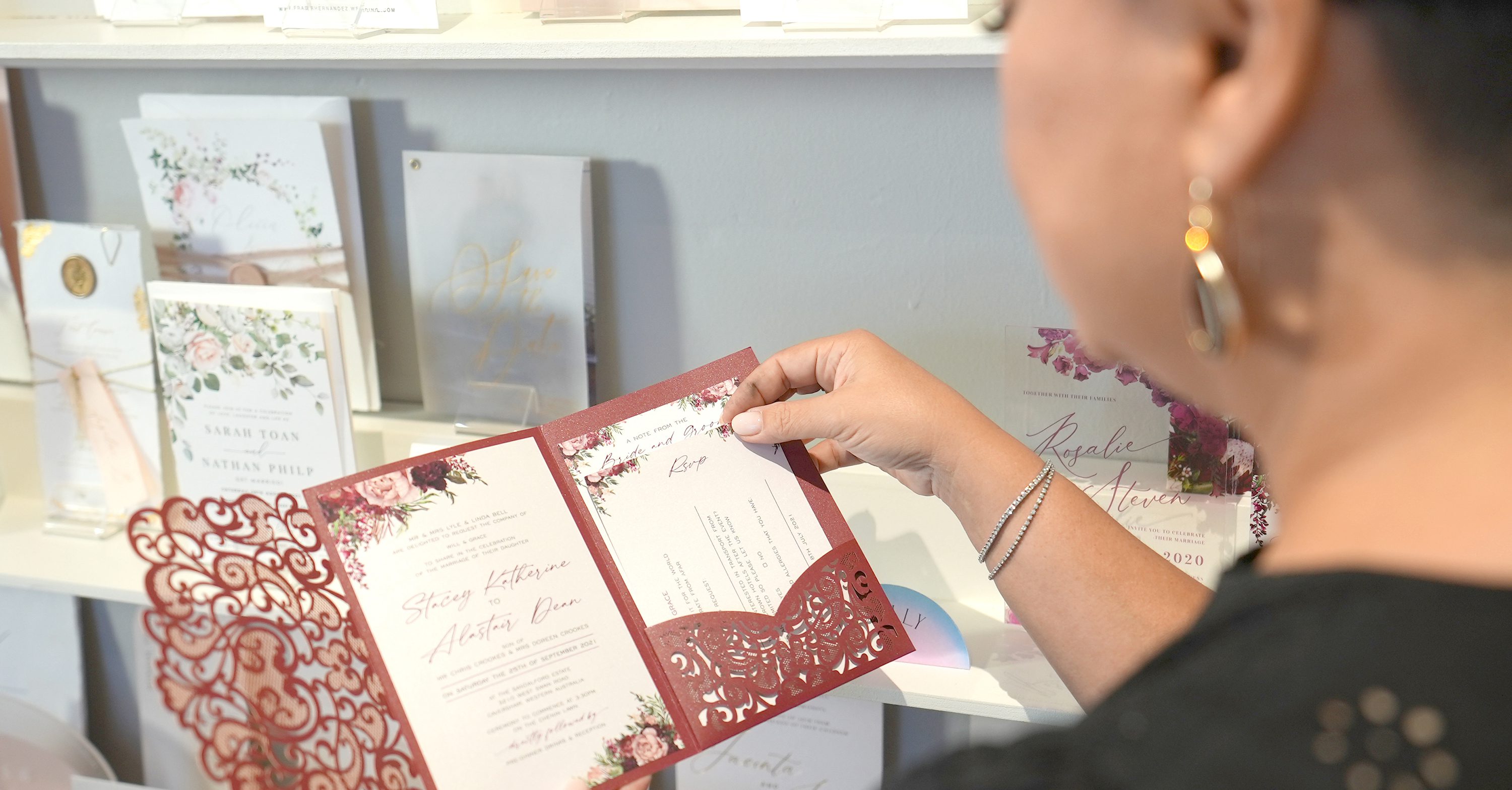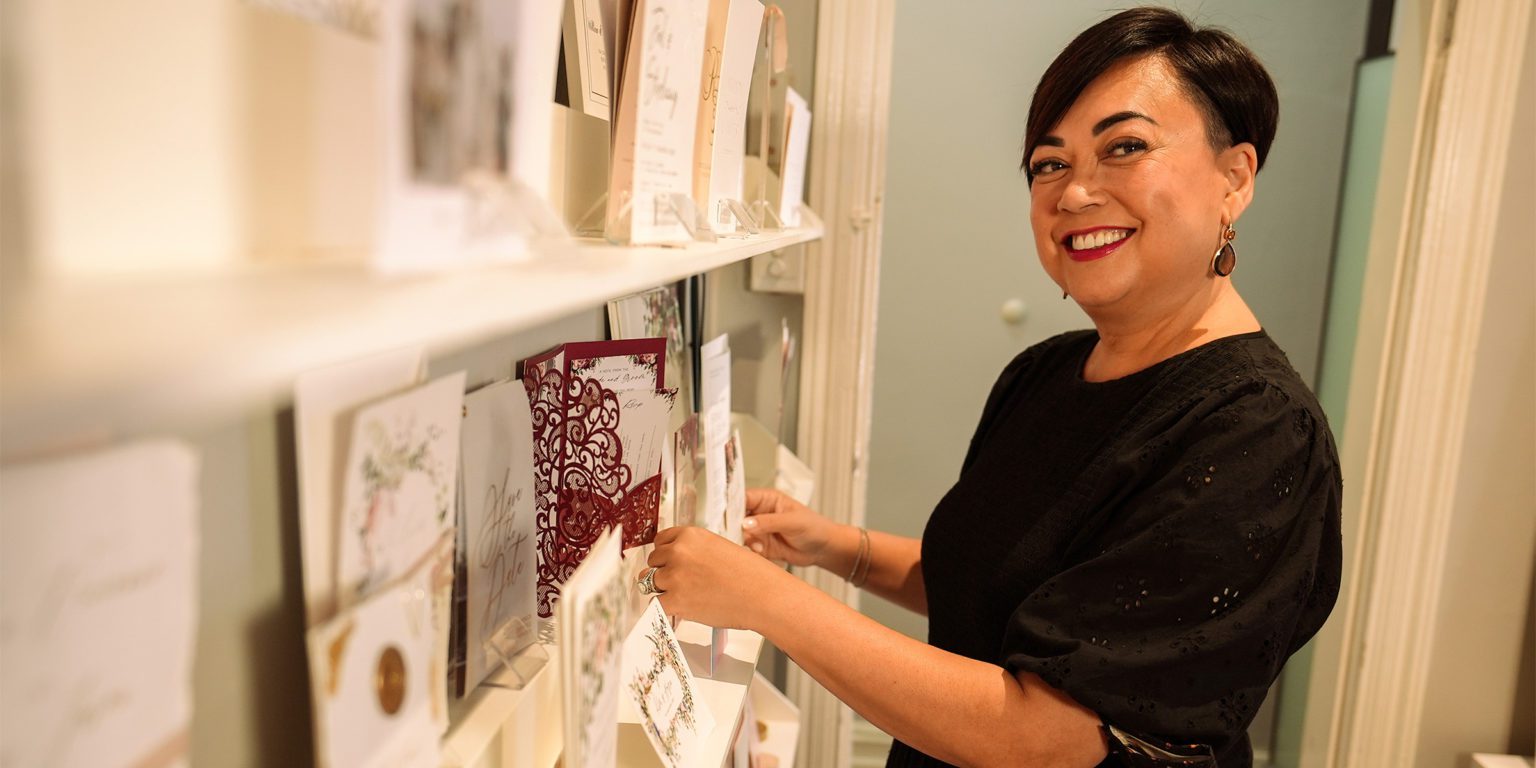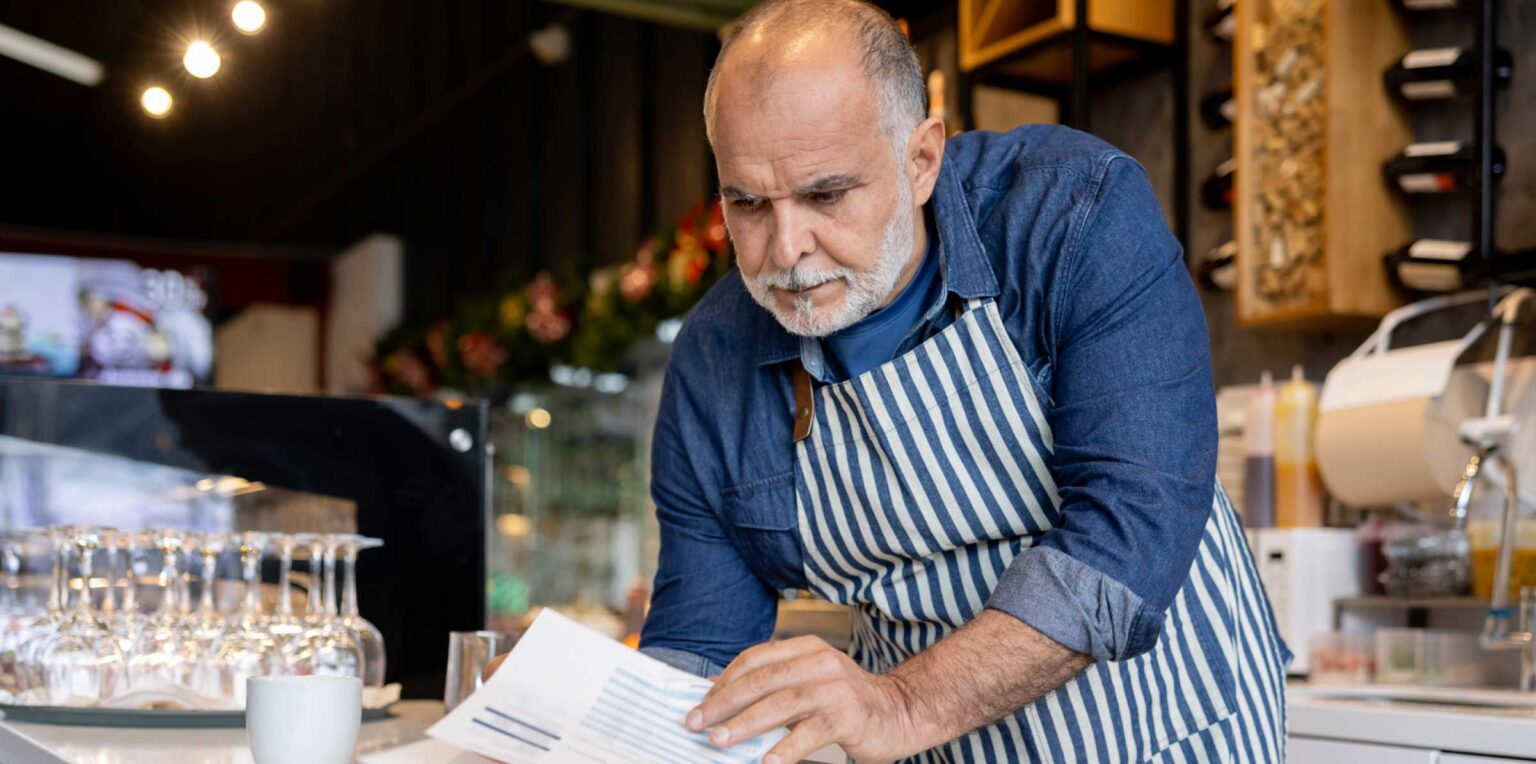Lahra Macnab has outlasted many of her competitors by constantly reinventing how her business operates. It’s a strategy that’s served her well, especially during the pandemic.
At a glance
A Prospa small business loan helped Lahra Macnab of Lala Design to:
- Buy more stock
- Develop new products
- Create a Shopify website to expand the business
“My wedding’s cancelled.”
Those were the words Lahra Macnab, founder of wedding stationery firm Lala Design in Perth, WA, remembers hearing in March 2020 as customer after customer called to say they were postponing their nuptials.
“Everything stopped,” she recalls. “We had 20 jobs with a printed product ready to be picked up. We take 50% deposit to start the job and then the balance when it’s collected. So it all had to go in the bin because it had dates on it. And we couldn’t ask for the rest of the money because the clients were in an emotional state after losing out financially themselves.”
Lahra also made a very difficult decision to let two of her long-serving staff members. She saved the business partly by relaunching a range of wedding planners she’d created. “We used the last bit of money that we had in the bank to fund Facebook ads for the planner,” she says.
Sales of the planner, along with Job Keeper, allowed Lahra to re-hire the employees she let go, and hire extra staff.
Reinvention: The key to success
It’s this kind of reinvention at the face adversity that helped Lala Design stay in business since 2003 when Lahra launched the brand at a market stall.
Just six months later she leased a small retail store which she ran for several years, providing a one-stop shop for co-ordinated wedding stationery. During this time Lahra started to produce her own papers and designs and sold them to 35 shops across Australia.
Since then, she’s leased a larger retail store and created a second business, The Creative Republic, which sells photographic backdrops.
Over the past five years Lahra has taken advantage of several small business loans from Prospa to help her grow the business.
She used the first loan to buy more stock. “There’s a huge outlay that goes with buying stock,” she says. “Sometimes a customer would walk in and buy everything and it might take us four weeks to get it back in because it came from the US or China. We never wanted to run out.”
Lahra chose Prospa because of its understanding of the unique challenges that small businesses face. “I hadn’t taken out any business loans or finance over the previous 15 years,” she says. “I self-funded everything. For this next growth stage I needed some capital and was terrified of the banks because of all the complicated processes you have to go through. When I saw an ad for Prospa that said ‘We’re here for small business’, I got in touch.”
Prospa’s smooth, easy application process and friendly phone support (she even remembers the name of the agent she spoke with in 2017) made the decision for Lahra to take out her first small business loan easier. “I remember my conversation with Patrick who made it so easy for me,” she says. “All I had to do was flick over my bank statements online.”
Another factor that Lahra loves about the small business loan is the small, daily deductions. “I didn’t even notice them, which made my day-to-day accounting and cash flow so much easier,” she says.
 Keeping the business moving
Keeping the business moving
When retail sales started to decline and her commercial rent went up by 25% in 2019, Lahra changed her business model again. She got out of her lease and created a bespoke, made-to-order design studio. She also added in-person and virtual consultations and a Shopify store.
She made the decision again to reach out to Prospa to help fund this. “You have to outlay so much before you get a return on it and often don’t have enough in your daily cash flow to fund it,” she says. “It’s a fine balance, particularly now with the pandemic. Being in the wedding industry, things can tip quickly.”
Lahra keeps coming back to Prospa because of its understanding of what small businesses need. “It’s easy and non-judgemental,” she says. “We’ve built trust.”
“Prospa has helped me grow my business and given me peace of mind.”
 A passion for mentoring
A passion for mentoring
In true entrepreneurial spirit Lahra is continuing to reinvent herself and her business. She plans to continue growing Lala Design as an ecommerce brand, keep The Creative Republic ticking over, and is now discovering a new passion: mentoring other business owners.
“When the pandemic hit, I knew I was about to go through one of the most stressful periods of my life,” she says. “Usually when that happens, I feel like I need to go out into the community and offer help to others.”
She put a post on her Instagram offering virtual mentoring sessions and has booked almost 70 clients since then. “I may age out of the wedding stationery business but I can do coaching and speaking for a long time,” she says. “I’m excited about becoming more of a leader.”
Want to expand your offering and tap into a new demographic? Ask Prospa about a funding solution that keeps your small business moving.








